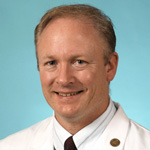Washington University School of Medicine has opened a clinic for patients with treatment-resistant depression. Directed by Charles R. Conway MD, the clinic targets patients who haven’t responded to standard therapies for depression.
Although antidepressant drugs usually help, not all patients respond to them. When at least two therapies have been tried, and a patient still hasn’t responded, that patient is said to have treatment-resistant depression.
In addition to Conway, an associate professor of psychiatry, the clinic team includes Yvette I. Sheline, MD; and Dragan M. Svrakic, MD, PhD. They carefully review the patient’s psychiatric records and oversee patient exams and evaluations.

Conway
“Treatment-resistant depression has a devastating impact on peoples’ lives, and at times it is completely incapacitating,” Conway says. “We estimate at least 5 percent of those with depression have severe forms that are resistant to treatment.”
When medication hasn’t helped, the clinic team may recommend additional medications to supplement what a patient already is taking, or suggest other treatments such as vagus nerve stimulation (VNS), transcranial magnetic stimulation (rTMS), deep brain stimulation (DBS) or electroconvulsive therapy (ECT), treatments that stimulate the brain in various ways to treat depression.
Vagus Nerve Stimulation is like a pacemaker, but for the brain. It involves implanting a device under the skin that sends electrical signals along the vagus nerve to the brain.
ECT is the “gold standard” for patients who haven’t responded to other therapy, but it causes a minor seizure and requires anesthesia, so some who seek to avoid ECT choose rTMS instead. That treatment is delivered by placing a magnet on the patient’s scalp to stimulate a particular area of the brain. The treatment is given five days a week for several weeks.
Deep brain stimulation involves careful placement of very thin electrodes into specific brain regions. This treatment currently is FDA-approved for compassionate use in severe, obsessive compulsive disorder (OCD) that has not responded to treatment. Research now is underway to determine whether DBS also is effective for treatment-resistant depression.
“This is a very exciting time for neurostimulation treatments for psychiatric disorders, and Washington University is very active in this area,” Conway says. “Other neurostimulation treatments, including the use of directed, high-powered electromagnetic fields to induced well-controlled seizures (referred to as magnetic seizure therapy) also are being studied, and we hope to be involved in research for that potential therapy.”
The clinic sees referrals from all over the Midwestern United States and tracks patient responses to treatments to allow the team to learn what works and what doesn’t. Some studies currently under way are attempting to determine in advance — using neuroimaging — which patients might be better candidates for which treatments.
For more information, call (314) 286-1700.
Washington University School of Medicine’s 2,100 employed and volunteer faculty physicians also are the medical staff of Barnes-Jewish and St. Louis Children’s hospitals. The School of Medicine is one of the leading medical research, teaching and patient care institutions in the nation, currently ranked fourth in the nation by U.S. News & World Report. Through its affiliations with Barnes-Jewish and St. Louis Children’s hospitals, the School of Medicine is linked to BJC HealthCare.